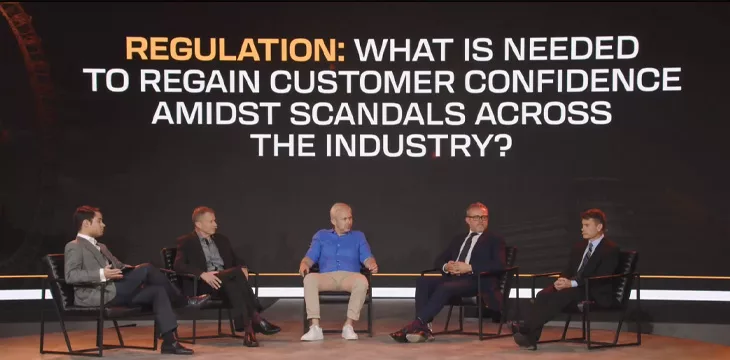IPv6 Forum President Latif Ladid unveils new blockchain project centered on the food supply chain

width=”562″ height=”315″ frameborder=”0″ allowfullscreen=”allowfullscreen”>
IPv6 Forum President Latif Ladid has been busy promoting IPv6, 5G and blockchain technology alongside other industry experts while working on a new project aimed at improving the global food supply chain.
Speaking on the sidelines of the IEEE Exeter Blockchain Event, Ladid told CoinGeek Backstage that his team is working on the future implementation of a €12-million ($13.1-million) project called Cities 2030 in Europe.
The initiative is a collaboration with 40 partners, and among them is Stephan Nilsson, founder and CEO of UNISOT, who gave a lecture at the University of Exeter on the deployment of blockchain in the food supply chain and the use of a combination of Bitcoin SV ( BSV ) and digital cash for his latest projects that seek to transform the sector.
Returning to the Cities 2030 project, Ladid said his team would use Nilsson’s tracking and tracing software to implement the scheme in 11 cities in Europe for the pilot run.
“We’re doing the first test in Belgium, where we have a lab that will use his software to track and trace products from the farm across the chain up to essentially the stores,” he said, adding that move will allow consumers to find out where the products arrived by using QR codes.
Ladid said the successful automation of the supply chain tracking system could reduce the chances of food being lost in the chain by about half from current estimates. According to recent studies, around 20% of the food produced in the US is lost in the chain alone.
The project will not only help consumers trace the origin of their purchased products, but will also reduce unnecessary production of food that could lead to resource scarcity in the long run, he said, adding that blockchain is the main key to prevent such a disaster happens.
“Blockchain is going to be a radical innovation,” Ladid said, pointing out that many countries have the right regulations to monitor their food supply chain, but lack the right tools — the tool.
“In this case, if we put this (blockchain) in place, the regulator may be able to find where the problem exists. So there is a big promise in this area,” he concluded.
See: Food Supply Chain & Blockchain
width=”562″ height=”315″ frameborder=”0″ allowfullscreen=”allowfullscreen”>
New to Bitcoin? Check out CoinGeeks Bitcoin for beginners section, the ultimate resource guide for learning more about Bitcoin – as originally envisioned by Satoshi Nakamoto – and blockchain.
























